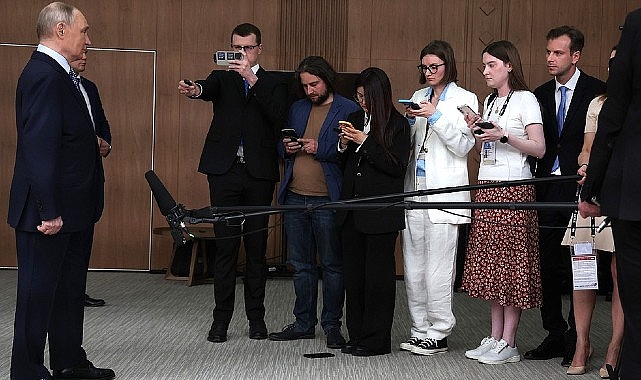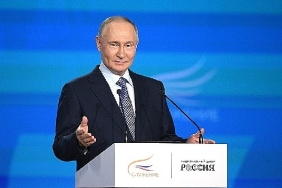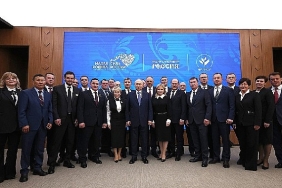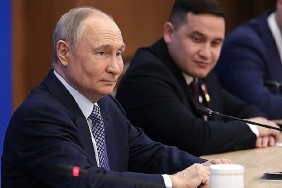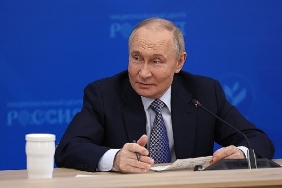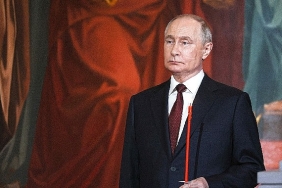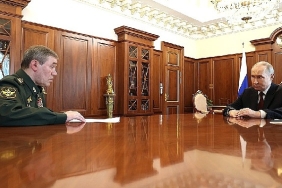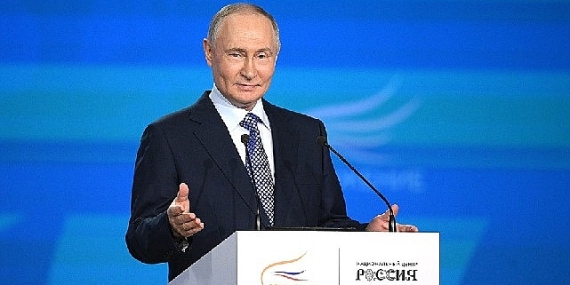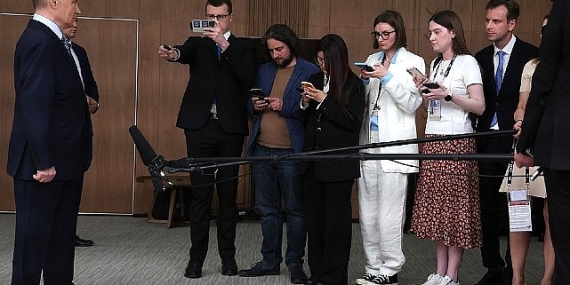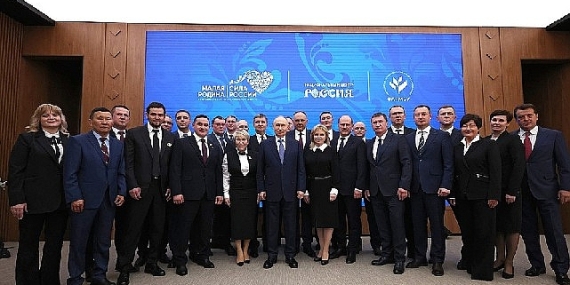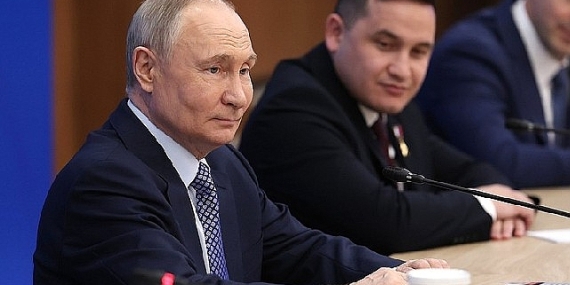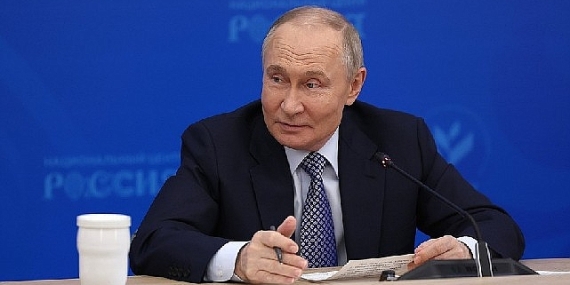Question: Mr President, is the Easter ceasefire over? How would you assess it? What is the current status? Have the hostilities resumed after it?
President of Russia Vladimir Putin: The hostilities have been resumed, as we said in the beginning when we announced the ceasefire. We are always positive about a ceasefire, and this is why this initiative was suggested. Especially on the Holy Easter. It happened so that this was a holiday for all Christian denominations: Catholics, Protestants and Orthodox Christians.
That is why we have always said that we treat any peace initiative positively. We hope that the representatives of the Kiev regime will treat this the same way. Although we saw the initial reaction. I think that everyone noticed it. A statement was published according to which our proposal was considered a game that involved people’s fate, people’s lives, and so on. However, there were apparently smarter people – most likely foreign curators – who suggested that rejecting such initiatives is a losing position for the Kiev regime, so they quickly agreed.
Now we can see that the Kiev regime is trying to steal the thunder and start talking about expanding the framework both in terms of time and targets. Of course, first we must think and carefully evaluate everything and see the results. After all, if you noticed, I said at the very beginning, when I met with the Chief of the General Staff, that we would see how declaring an Easter ceasefire would turn out.
What does this mean? Overall, we can see that the enemy’s combat activity is reducing. This is true. These are the assessments, including those given by the commanders of our groups. However, there were 4900, almost five thousand, violations. Of these, there were six attacks and 90 attempts at strikes by fixed-wing drones (UAVs), and I think 400 instances of artillery shelling. But in general, there was still a drop in activity. We welcome this and are ready to think about it in the future.
Regarding the proposal to refrain from striking civilian infrastructure targets – this matter requires thorough examination.
Take, for example, the widely reported strike by our Armed Forces on the congress centre of Sumy University, I think. Is this a civilian facility or not? It is civilian. However, an award ceremony was held there for those who committed crimes in the Kursk Region – both AFU (the Armed Forces of Ukraine) units and nationalist formations. These are individuals we consider criminals, who deserved the punishment for their actions in the border areas, including the Kursk Region. They got that punishment. The strike was carried out precisely to punish them. So, is this a civilian facility or not? Yet the regime exploits such civilian sites.
Or the strike delivered by our Armed Forces in the Odessa region just days ago. This targeted a small residential area approximately 82 kilometres from Odessa. What was this site? An agricultural facility, agricultural hangars. However, the Kiev authorities, alongside foreign supervisors and assistants, had organised – indeed, attempted to organise – not only production but also testing of a new missile system there. Hence, the strike was delivered. Is this a civilian facility? It is civilian. But it was used for military purposes.
Similarly, gatherings have been held in restaurants by individuals who deserve most severe punishment for their crimes. Such instances have also occurred. Restaurants host meetings, assemblies, celebrations – vodka toasts and the like. Strikes have also been delivered against such venues. Is this a civilian facility? It is civilian. But the function? Military.
This issue requires thorough scrutiny. All such cases require meticulous investigation, possibly even on a bilateral basis through dialogue. We do not rule this out.
We will analyse all such instances and make appropriate decisions for the future.
Question: Sad news from the Vatican: Pope Francis died. You met with him many times, you had respect for each other, and he came forward with numerous initiatives.
You have sent a message of condolences, but still can you say a few more words about the Pontiff?
Vladimir Putin: You are right. He had a highly positive attitude towards Russia. I can say that for sure.
I met with him personally on many occasions, and we maintained relations via various channels. I want to emphasise once again that he had a highly positive attitude towards Russia. We will remember that.
I am not sure about Catholics, but Orthodox people have such an understanding, such an internal tradition, a traditional understanding that if God calls a person to heaven during Easter time, it is a special sign that that person has not lived his life in vain, has done a lot of good for the people, and God calls him to heaven on these festive Easter days.
I think this is the case. I mean that the Pope has done a lot of good not only for his flock, but for the world at large, as well. We offer our deepest condolences to the entire Christian world and first of all, of course, to Catholics.
Question: Mr President, how do you feel about the fact that European officials are issuing threats to the European leaders who are planning to come to Moscow on May 9?
Vladimir Putin: To issue threats, one needs to have the proper tools to act on them. This is number one. Number two, you have to be ready to use these forces and means. Does any European official have any of that? I am not sure. If the potential of the countries standing behind them is limited to one million, or 1.3 million people, and they are calling to continue the war to the last Ukrainian, it begs questions as to whether they are truly thinking that and whether they are in their right mind when they propose something like that.
However, I think that those who are planning to come to Russia have much more courage than those who are hiding behind someone’s back trying to threaten other people, especially those who are going to mark the historical feats of the people who gave their lives in the fight against Nazism.
Kaynak: (BYZHA) Beyaz Haber Ajansı
